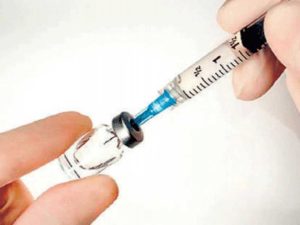Q+A: National Vaccination Day
National Vaccination Day, also known as Immunization Day or Polio Ravivar, is an annual event celebrated in India on March 16th. The day holds significant importance in India’s public health calendar, as it promotes vaccination campaigns and raises awareness about the importance of vaccines in preventing infectious diseases. In this article, we will explore the history and significance of National Vaccination Day and the ongoing efforts to ensure full immunization in India.
When was National Vaccine Day first observed?
The first National Vaccination Day was celebrated in India in 1995 to eradicate polio from the country. At that time, polio was a major public health concern in India, with thousands of children being affected every year. Since then, National Vaccination Day has become an essential event in India’s public health calendar.
Why is this day significant?
On this day, the Indian government and various organizations conduct vaccination drives across the country to immunize children and adults against various diseases. The primary focus is on providing vaccines to those who may have missed their scheduled immunizations. National Vaccination Day is also an opportunity to educate people about the benefits of vaccination and dispel any myths or misconceptions about vaccines. Through awareness campaigns, the public is made aware of the importance of timely and complete immunization to prevent the spread of diseases.
What is the purpose of Mission Indradhanush?
The government of India launched Mission Indradhanush in 2014 to ensure full immunization with all available vaccines for children up to two years of age and pregnant women. Mission Indradhanush provides vaccination against diseases such as Diphtheria, Whooping Cough, Tetanus, Polio, Tuberculosis, Hepatitis B, Meningitis and Pneumonia, Haemophilus Influenzae Type B infections, Japanese Encephalitis (JE), Rotavirus, Pneumococcal Conjugate Vaccine (PCV), and Measles-Rubella (MR). India is moving towards the eradication of measles and rubella and has set a target of 2023 for covering children and pregnant women. Measles kills more than 1 lakh children globally, and Rubella causes birth defects. Both can be prevented by Vaccines.
Importance in the COVID-19 pandemic
In recent years, National Vaccination Day has gained even more significance due to the COVID-19 pandemic. The Indian government has been promoting vaccination campaigns to protect the population from the virus and prevent the spread of the disease. Vaccines have been shown to be effective in preventing severe illness and hospitalization due to COVID-19. The Indian government has launched a nationwide COVID-19 vaccination drive and has administered millions of vaccine doses across the country.
Month: Current Affairs - March, 2023
Category: Important Days & Events Current Affairs


